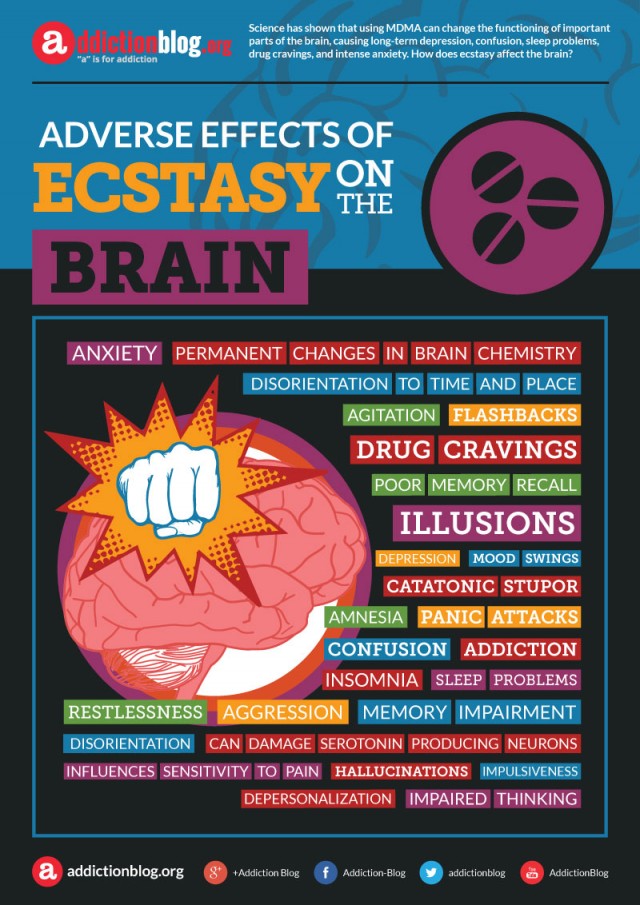Adverse effects of ecstasy on the brain
Science has shown that using 3,4-methylenedioxy-methamphetamine, or MDMA, can change the functioning of important parts of the brain, causing long-term depression, confusion, sleep problems, drug cravings, and intense anxiety. How does ecstasy affect the brain? More here.
Primary effects of ecstasy on the brain

- addiction
- can damage serotonin producing neurons
- catatonic stupor
- depersonalization
- drug cravings
- hallucinations
- insomnia
- permanent changes in brain chemistry
Secondary effects of ecstasy on the brain
- aggression
- anxiety
- depression
- flashbacks
- illusions
- impaired thinking
- influences sensitivity to pain
- panic attacks
- sleep problems
Tertiary effects of ecstasy on the brain
- agitation
- amnesia
- confusion
- disorientation
- disorientation to time and place
- impulsiveness
- memory impairment
- mood swings
- poor memory recall
- restlessness
Can ecstasy harm the brain?
While many people that that MDMA is harmless, its effects can cause acute and prolonged disturbance of brain function. Its most serious side effects are related to mood disorders such as depression, anxiety, and panic (much like cocaine), and suicidal ideation can be a reality for long time, high dose users. Additionally, MDMA can damage serotonin producing neurons.
Still need to vent or share your beliefs about ecstasy? Please do so in the comments section here.








Related Posts